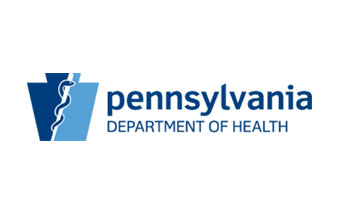PA Health Policy Update for November 1
The following is an update of selected state health policy developments in Pennsylvania October 28 – November 1. (Some of the language used below is taken directly from state documents).
Governor Shapiro
Governor Shapiro signed the following bills into law this week.
- House Bill 1608, now known as Act 115 of 2024, which extends Medicaid coverage to doula services and creates a doula advisory board.
- House Bill 2185, now known as Act 117 of 2024, which requires the Department of Health to develop type 1 diabetes informational materials for parents and guardians.
- House Bill 2381, now known as Act 119 of 2024, which enables the licensing boards or commissions under Department of State to promulgate one-time, temporary regulations necessary for the implementation of each licensure compact enacted by the General Assembly.
- Senate Bill 365, now known as Act 121 of 2024, which amends the Workers’ Compensation Act to provide first responders with post-traumatic stress injury (PTSI) coverage.
- Senate Bill 920, now known as Act 122 of 2024, which establishes a statewide sexual assault evidence tracking system.
- Senate Bill 267, now known as Act 134 of 2024, which adds urgent care centers to the list of safe haven locations for newborn children.
- Senate Bill 1080, now known as Act 137 of 2024, which allows licensed practical nurses to make death pronouncements in the hospice setting.
General Assembly
The state House of Representatives and Senate are currently recessed until after the November 5 General Election.
Department of Human Services
- The Department of Human Services (DHS) has announced its intent to allocate funds in FY 2024-2025 for several classes of inpatient disproportionate share hospital (DSH) payments and supplemental payments to Medical Assistance enrolled, qualifying inpatient general acute care hospitals. DHS does not intend to change the qualifying criteria or payment methodology for these payments. Find additional information in this Pennsylvania Bulletin notice.
- DHS has published its proposed Psychiatric Residential Treatment regulations in the Pennsylvania Bulletin. These proposed regulations codify the minimum licensing standards, Medical Assistance participation requirements, and payment conditions for psychiatric residential treatment facilities which treat certain children, youth, or young adults under 21 years of age.
- DHS has published a Medical Assistance Bulletin with updates to the PROMISe™ Provider Handbook 837 for Medical Assistance enrolled federally qualified health centers (FQHCs) and rural health clinics (RHCs).
- The Office of Medical Assistance Programs (OMAP) has announced it will be hosting several upcoming community health worker (CHW) listening sessions throughout November and December in order to gather information that will help DHS’ strategic plan for CHWs. Find a schedule of the listening sessions as well as details on how to participate here.
- DHS has issued a Medical Assistance Bulletin with Pennsylvania’s Early and Periodic Screening, Diagnosis and Treatment (EPSDT) Program Periodicity Schedule and Coding Matrix. This bulletin applies to all providers enrolled in the Medical Assistance program who provide EPSDT screens for Medical Assistance beneficiaries.
- DHS has shared the following presentations used at the Medical Assistance Advisory Committee (MAAC) meeting on October 24.
Insurance Department 
The Pennsylvania Insurance Department has published a notice in the Pennsylvania Bulletin that the Medical Care Availability and Reduction of Error (MCARE) assessment for all basic insurance coverage and self-insured participating health care providers for calendar year 2025 will be 29 percent applied to the prevailing primary premium for each participating health care provider.
Board of Medicine
The State Board of Medicine has published its final-form rulemaking related to licensure by endorsement. The regulations are effective upon publication in the Pennsylvania Bulletin. Find the final-form regulations here.
Office of the Attorney General
The Office of the Attorney General (OAG) has filed a civil suit against Prospect Medical Holdings, which owns Crozer Health System, over breach of contract. OAG has alleged Prospect has broken its 2016 court-approved “asset purchase agreement” by closing facilities and diverting funding from the sale of real estate to shareholders and investors. The lawsuit seeks a preliminary injunction to preserve Crozer’s existing services, and the appointment of a receiver to manage the Crozer Health System until another buyer can be identified. Find additional details in this press release.
Revenue Collection Update
The Department of Revenue has announced Pennsylvania collected $4.2 billion in General Fund revenue in September, which was $33.7 million, or 0.8 percent, less than anticipated. Fiscal year-to-date General Fund collections total $10.1 billion, which is $20.2 million, or 0.2 percent, above estimate.
Around the State
- Spotlight PA has published an article written by Stephen Caruso about a slate of bills to improve maternal health care in Pennsylvania.
- WHYY has written an article about Attorney General Michelle Henry’s decision to sue Prospect Medical Holdings over Crozer Health System.
- City & State Pennsylvania has published an article about Pennsylvania’s health insurance marketplace, Pennie, as the open enrollment period nears.
Stakeholder Events
Pennsylvania Health Care Cost Containment Council – November 7
The Pennsylvania Health Care Cost Containment Council (PHC4) will hold a public meeting on Thursday, November 7. Find additional details on how to participate in this Pennsylvania Bulletin notice.
DOH – Organ Donation Advisory Committee – November 7
The Organ Donation Advisory Committee will hold a public meeting on Thursday, November 7 from 10:00 a.m. to 1:30 p.m. The meeting will be held in person and virtually. Find additional details on how to participate in this Pennsylvania Bulletin notice.
DOH – HIV Planning Committee – November 20
The Statewide HIV Planning Committee will hold public meetings at the Hilton Harrisburg (One North 2nd Street, Harrisburg, PA 17101) on Wednesday, November 20 from 9:00 a.m. to 5:00 p.m. and on Thursday, November 21 from 9:00 a.m. to 4:30 p.m. The meeting will also be held virtually. Find additional details on how to participate in this Pennsylvania Bulletin notice.
DOH – Spinal Cord Research Advisory Committee – November 18
The Spinal Cord Research Advisory Committee will hold a public meeting on Monday, November 18 from 10:30 a.m. to 11:30 a.m. The meeting will be held in person and virtually. Find additional details on how to participate in this Pennsylvania Bulletin notice.







 Governor Shapiro
Governor Shapiro